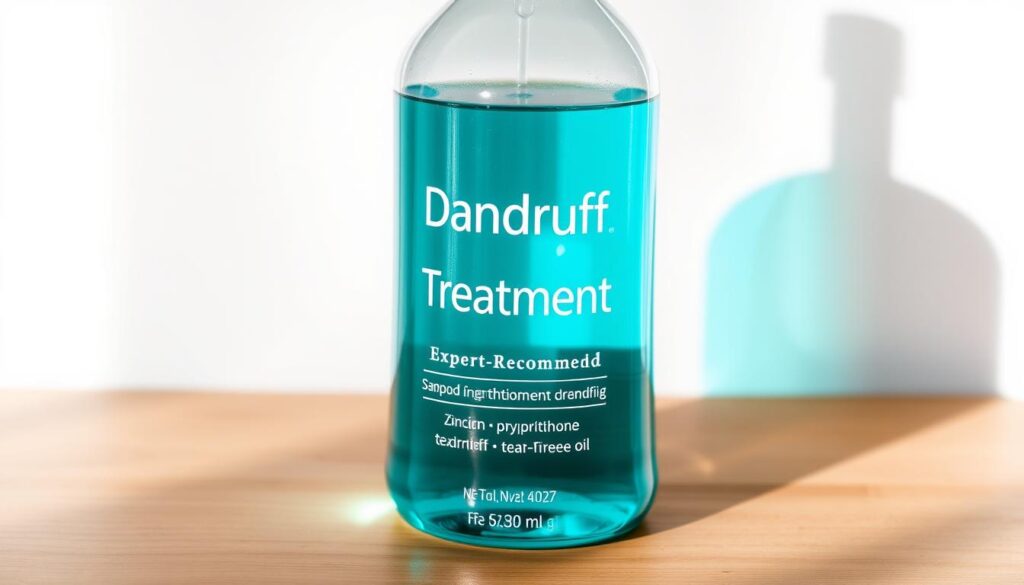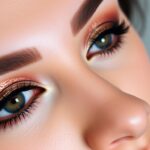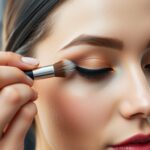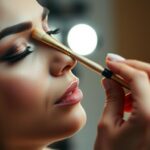Dandruff is more than just annoying white flakes on your shoulders. It affects nearly 50% of people worldwide, causing frustration and self-consciousness. You’re not alone in your battle with scalp care challenges.
Finding the right anti-dandruff shampoo can change your hair and boost your confidence. With so many options, picking the best dandruff treatment can feel overwhelming. Choosing the right product can help manage white flakes and improve your scalp’s health.
Our guide will show you expert-recommended solutions. We’ve looked at top shampoos, their ingredients, and gathered insights. Whether you have mild or persistent dandruff, we’ll help you find the perfect solution for your scalp.
Understanding dandruff’s science and professional advice will help you fight this common scalp issue. Say goodbye to flakes and hello to healthy, confident hair.
Table of Contents
Understanding Dandruff: Causes and Symptoms
Dandruff is a common scalp condition that affects about 50% of adults worldwide. Knowing what causes it and its symptoms can help you manage it better.
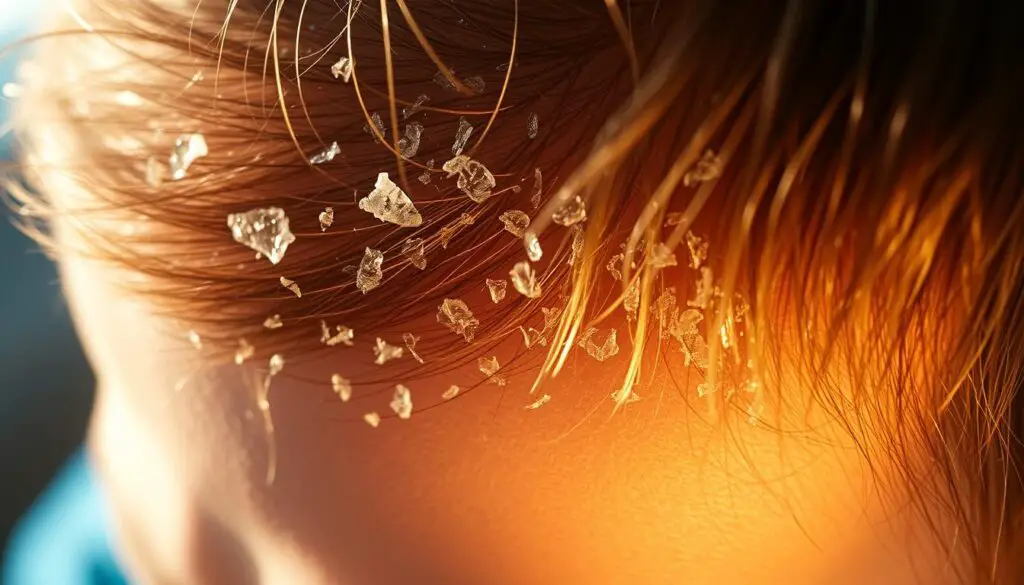
What Causes Dandruff?
Many things can lead to a flaky and itchy scalp. The main causes include:
- Overgrowth of Malassezia yeast
- Seborrheic dermatitis
- Sensitivity to hair care products
- Hormonal changes
- Stress and environmental factors
Common Symptoms to Look For
Spotting dandruff early can make it easier to manage. Look out for these signs:
- White or yellowish flakes on scalp and shoulders
- Persistent itching
- Redness or irritation
- Dry, scaly patches
Types of Dandruff
Dandruff comes in different forms. Knowing the types can help you pick the right treatment:
| Dandruff Type | Characteristics | Typical Causes |
|---|---|---|
| Dry Scalp Dandruff | Small, white flakes | Skin dryness, weather changes |
| Oily Dandruff | Larger, yellowish flakes | Excess sebum, Malassezia yeast |
| Seborrheic Dermatitis | Greasy, inflamed scalp | Overactive oil glands, fungal growth |
“Understanding your scalp is the first step to managing dandruff effectively.” – Dermatology Experts
Note: If symptoms persist or worsen, consult a healthcare professional for personalized advice.
Ingredients to Look For in Dandruff Shampoo
Finding the right anti-dandruff shampoo can be tough. Knowing the key ingredients that fight scalp problems is key. This helps manage dandruff and keeps your hair healthy.
Active Ingredients That Fight Dandruff
When looking for a medicated shampoo, search for strong active ingredients. These ingredients target dandruff at its source. The best ones include:
- Zinc Pyrithione: Kills bacteria and fungi
- Ketoconazole: Strong antifungal agent
- Selenium Sulfide: Reduces fungal growth
- Salicylic Acid: Helps remove dead skin cells
- Coal Tar: Slows skin cell turnover
Natural vs. Chemical Options
Both natural and chemical solutions can help your scalp. Natural ingredients like tea tree oil and coconut oil are gentler. They offer a softer option compared to traditional medicated shampoos.
| Natural Ingredients | Chemical Ingredients |
|---|---|
| Tea Tree Oil | Zinc Pyrithione |
| Coconut Oil | Ketoconazole |
| Aloe Vera | Selenium Sulfide |
Ingredients to Avoid
Some ingredients can irritate your scalp or cause more problems. Be careful of:
- Harsh sulfates
- Alcohol-based products
- Artificial fragrances
- Parabens
“Choosing the right ingredients is key to effective dandruff management.” – Dermatology Experts
Remember, everyone reacts differently to ingredients. What works for one person might not work for another. Talking to a dermatologist can help you find the best anti-dandruff shampoo for your scalp.
Top Picks for the Best Shampoo for Dandruff
Finding the right shampoo for dandruff can change your hair and scalp care routine. There are many options, making it hard to choose the best one. Let’s look at the top shampoos that fight dandruff well.

Clinical Strength Shampoos for Severe Cases
For those with tough dandruff, clinical strength shampoos are a strong solution. Head & Shoulders Clinical Strength Dandruff Defense Shampoo is a top choice. Studies show it greatly improves dandruff in just three to four uses.
- Contains targeted active ingredients
- Reduces dandruff severity by up to 87%
- Provides quick relief from itching and flaking
Natural and Organic Shampoo Alternatives
Natural anti-dandruff shampoos are great for those who want gentle care. Briogeo Scalp Revival uses charcoal to fight dandruff and care for your hair.
- Includes ingredients like tea tree oil
- Uses charcoal to detoxify scalp
- Gentle on sensitive skin
Customizable Formulas for Unique Needs
Today, there are shampoos made just for you. The Jupiter Balancing Shampoo is sulfate-free and makes hair less dry in two weeks.
Professional dermatologists say choose a shampoo that fits your scalp and hair type.
| Shampoo Brand | Price Range | Key Active Ingredient |
|---|---|---|
| Head & Shoulders | $14 | Pyrithione Zinc |
| Briogeo Scalp Revival | $32 | Salicylic Acid |
| Jupiter Balancing | $25-$32 | Tea Tree Oil |
Finding the right shampoo for dandruff is a personal journey. Try different ones and listen to what your scalp needs for the best results.
How to Choose the Right Dandruff Shampoo for You
Finding the right dandruff treatment can be tough. Since dandruff affects about 50% of adults, picking the right shampoo is key for good hair and scalp health.
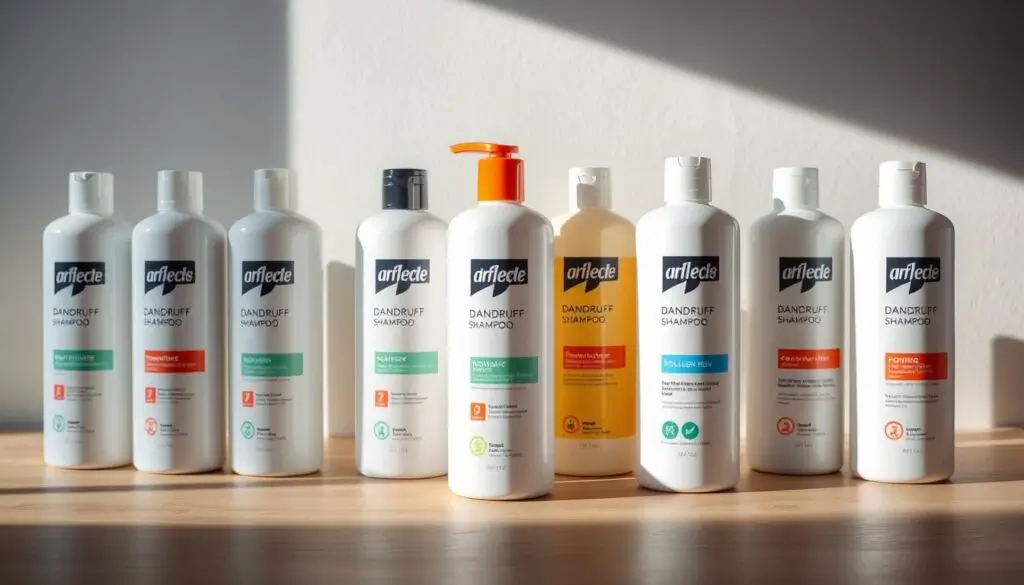
Understanding Your Hair Type
Your hair type is important when picking a dandruff shampoo. Different hair types need different treatments:
- Oily scalp: Look for clarifying formulas
- Dry scalp: Choose moisturizing treatments
- Color-treated hair: Select gentle, color-safe options
- Sensitive scalp: Opt for mild, hypoallergenic shampoos
Assessing Dandruff Severity
Knowing how bad your dandruff is helps pick the right treatment. Dandruff can be mild, moderate, or severe:
| Severity Level | Characteristics | Recommended Treatment |
|---|---|---|
| Mild | Occasional small flakes | Regular anti-dandruff shampoo |
| Moderate | Frequent visible flakes | Medicated shampoo with active ingredients |
| Severe | Large scales, scalp inflammation | Professional dermatologist consultation |
When to Consult a Dermatologist
Some dandruff cases need a doctor’s help. See a dermatologist if you have:
- Persistent dandruff lasting over 4 weeks
- Intense scalp irritation
- Significant hair loss
- Severe inflammation or redness
“Identifying the right dandruff treatment is key to restoring your scalp’s health and confidence.” – Dermatology Experts
Effective dandruff management means knowing your scalp’s needs and choosing the right treatment.
How to Use Dandruff Shampoo Effectively
Finding the right dandruff treatment can be tough. Knowing how to use anti-dandruff shampoo is key for a healthy scalp and hair.
Proper Application Techniques
How you apply dandruff shampoo is as important as the shampoo itself. Here are some tips from experts:
- Wet your hair well with warm water
- Put a good amount of dandruff shampoo on your scalp
- Gently massage it in with circular motions
- Let it sit for 3-5 minutes for the best results
- Rinse with lukewarm water until clean
Frequency of Use
How often you use dandruff shampoo depends on how bad your dandruff is and the shampoo’s strength. Here’s a simple guide:
| Dandruff Severity | Recommended Usage |
|---|---|
| Mild Dandruff | 1-2 times per week |
| Moderate Dandruff | 2-3 times per week |
| Severe Dandruff | 3-4 times per week |
Follow-Up Care
After treating your dandruff, don’t forget these extra steps for your scalp:
- Use a moisturizing conditioner to keep your scalp from getting dry
- Avoid styling products that can make your scalp itch
- Eat a balanced diet with zinc and B vitamins
- Drink plenty of water to help your scalp stay healthy
*”Consistency is key in managing dandruff effectively”* – Dermatology Experts
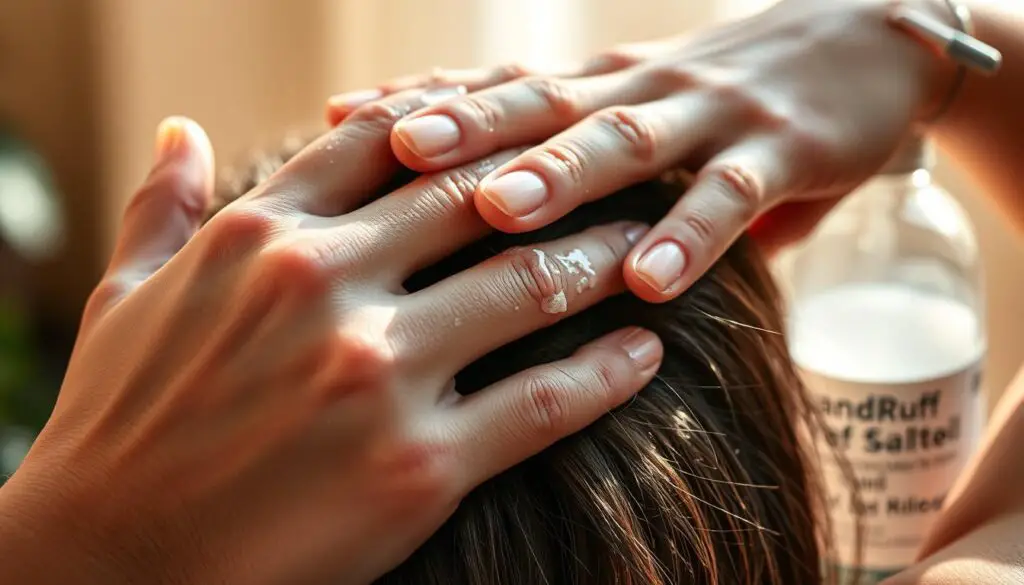
If your dandruff doesn’t get better after 4-6 weeks, see a dermatologist for advice.
Myths and Misconceptions About Dandruff
Dandruff is a complex scalp condition that often suffers from misunderstandings. Many people hold onto incorrect beliefs about this common hair health issue. This can prevent them from seeking effective dandruff treatment.

Let’s explore and debunk some of the most prevalent myths surrounding dandruff:
Myth: Dandruff Only Happens Due to Poor Hygiene
Contrary to popular belief, dandruff is not a direct result of unclean hair. Scalp care involves understanding that dandruff can occur due to various factors, including:
- Skin sensitivity
- Fungal growth
- Hormonal changes
- Stress levels
Myth: Only Men Experience Dandruff
Another common misconception is that dandruff exclusively affects men. In reality, both men and women can experience this scalp condition. The key is recognizing the signs and pursuing appropriate treatment.
Myth: Dandruff Cannot Be Treated
This myth could not be further from the truth. Most cases of dandruff can be effectively managed with the right approach. Targeted dandruff treatment strategies include:
- Using specialized anti-dandruff shampoos
- Maintaining proper scalp hygiene
- Managing underlying health conditions
“Understanding dandruff is the first step to effectively managing it.” – Dermatology Experts
Key Insights About Dandruff
| Characteristic | Description |
|---|---|
| Fungal Connection | Malassezia fungus often contributes to dandruff development |
| Flake Appearance | Yellow-tinged, larger flakes compared to dry scalp |
| Treatment Approach | Targeted anti-fungal and moisturizing treatments |
Remember, understanding the truth about dandruff empowers you to take control of your hair health. Find the most effective solutions for your scalp.
Home Remedies for Dandruff Management
Dealing with dandruff doesn’t always need expensive treatments. Natural remedies can help with scalp care and dandruff treatment at home. Let’s look at some simple yet effective ways to manage white flakes.

DIY Scalp Treatments
You can make strong natural remedies with common household items. Here are some DIY scalp treatments:
- Tea Tree Oil Rinse: Mix 10 drops of tea tree oil with 2 tablespoons of coconut oil
- Aloe Vera Mask: Use fresh aloe vera gel on your scalp for soothing relief
- Apple Cider Vinegar Wash: Mix with water for a clarifying scalp treatment
Natural Oils for Moisture
Certain natural oils can change your scalp care routine. Coconut oil is great because it fights off microbes and may reduce dandruff when used twice a week.
“Nature provides the best remedies for scalp health” – Holistic Hair Care Expert
Dietary Considerations
Your diet is key in managing dandruff. Try adding:
- Probiotic-rich foods like kombucha
- Zinc-containing foods such as nuts and whole grains
- Omega-3 fatty acids from fish and seeds
While these natural remedies can help, if dandruff persists, see a professional. Always test new treatments and stop if irritation happens.
The Importance of Scalp Care
Your scalp is key to healthy hair. It plays a big role in hair health and fighting dandruff. Taking care of your scalp can change how your hair looks and feels.
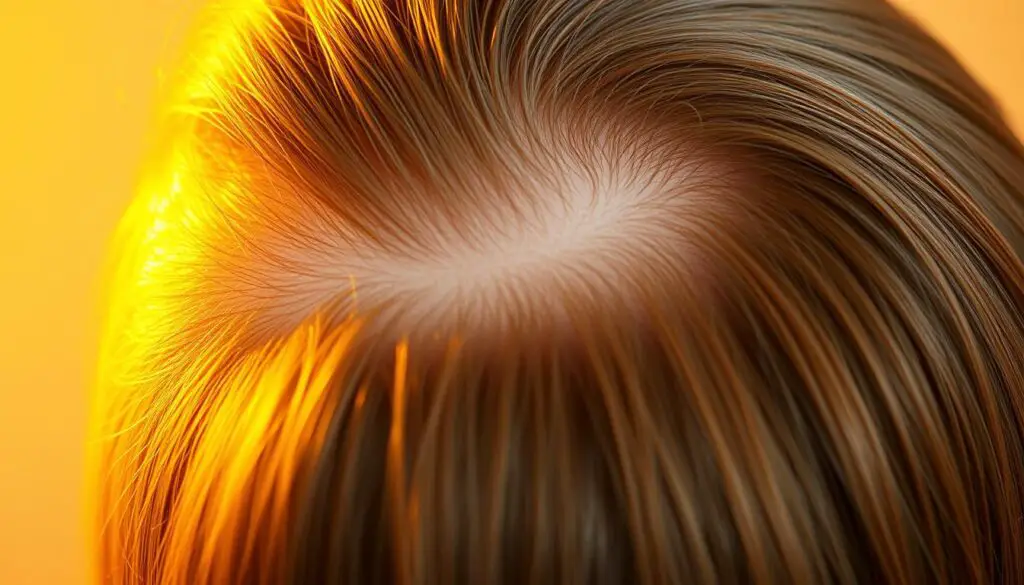
About 50% of adults get dandruff at some time. This shows how important it is to take care of your scalp. A healthy scalp helps your hair grow well and avoids common problems.
Maintaining Scalp Health
Scalp health is about many things that affect your hair. Here are some important points:
- Balanced oil production
- Proper hydration
- Minimizing product buildup
- Addressing underlying skin conditions
“Your scalp is essentially the soil from which your hair grows—nurture it, and beautiful hair will follow.”
The Role of Scalp Exfoliation
Scalp exfoliation is very important for scalp care. Studies show it can remove up to 95% of buildup. This helps:
- Unclog hair follicles
- Stimulate blood circulation
- Promote healthier hair growth
- Reduce dandruff and flakiness
Hydration for Your Scalp
Keeping your scalp hydrated is crucial. A dry scalp can make your hair brittle and increase dandruff. Using hydrating ingredients like Cannabis Sativa Seed Oil and Avocado can help protect your scalp and improve your hair’s health.
By focusing on scalp care, you’re making your hair stronger and healthier. It will look and feel great.
Common Mistakes When Treating Dandruff
Dealing with dandruff can be tough. Many people make big mistakes that can make things worse. Knowing these mistakes can help you find better ways to treat dandruff.
Overloading Your Scalp with Products
Using too many anti-dandruff products at once is a big mistake. About 70% of people pick the wrong product for their scalp. Using different shampoos and treatments can:
- Irritate your scalp
- Strip natural oils
- Disrupt your scalp’s natural balance
Ignoring Underlying Scalp Conditions
Dandruff might be a sign of a bigger scalp problem. Only 25% of people see a dermatologist for scalp issues. Conditions like:
| Condition | Symptoms | Prevalence |
|---|---|---|
| Seborrheic Dermatitis | Yellow-tinted flakes | 2-3% of population |
| Dry Scalp | White flaking | 40% of users misdiagnose |
Discontinuing Treatment Too Early
Many stop treating dandruff too soon. This is a big mistake. Studies show you need to keep treating to keep your scalp healthy. The Malassezia yeast, which causes dandruff, can come back if you stop treatment.
“Consistency is key in managing dandruff and maintaining overall hair health.” – Dermatology Experts
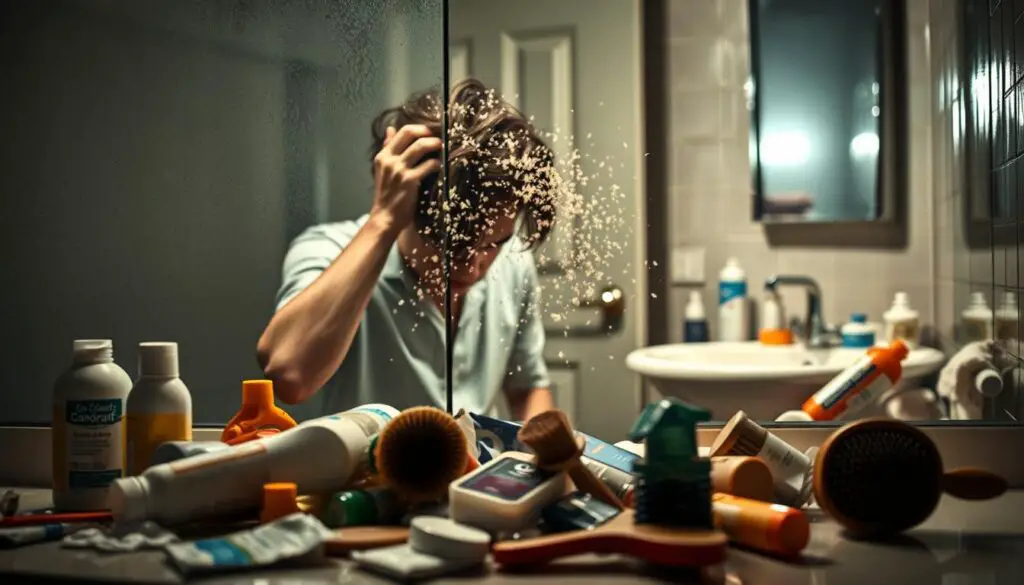
Avoiding these mistakes can help you treat dandruff better. You can get healthier, flake-free hair.
Seasonal Dandruff: What You Should Know
Your scalp’s health changes with the seasons, making dandruff treatment a year-round task. Weather conditions greatly affect how your scalp reacts, leading to unique challenges in winter and summer.

It’s important to know how seasonal changes affect scalp care. This knowledge helps manage dry scalp and prevent dandruff. Different weather conditions trigger different scalp responses, needing specific treatments.
Winter Dandruff Challenges
Winter is tough on scalp health. Cold, dry air and indoor heating make dandruff worse. Studies show:
- 70% of people see dandruff worsen in winter
- Over 60% say dry scalp is a big winter concern
- Those with oily skin see a 35% increase in dandruff in cold months
Summer Scalp Considerations
Summer also poses scalp care challenges. Sweating and heat encourage dandruff growth. Key factors include:
- Higher humidity leads to more oil
- Sweating can irritate the scalp
- Sun exposure affects scalp health
Seasonal Scalp Care Strategies
| Season | Recommended Actions |
|---|---|
| Winter | Use moisturizing dandruff shampoos, run humidifiers, avoid hot showers |
| Summer | Choose lightweight anti-dandruff products, protect scalp from sun, wash frequently |
“Your scalp’s needs change with the seasons – adaptability is key to maintaining healthy hair.” – Dermatology Experts
Understanding these seasonal changes helps you develop a flexible dandruff treatment plan. This keeps your scalp healthy all year.
When to Seek Professional Help for Dandruff
Dealing with persistent dandruff can be frustrating. Many people use over-the-counter treatments to manage their scalp conditions. But, some cases need professional medical help. Knowing when to see a dermatologist is key to treating dandruff effectively.
Signs You Need a Dermatologist
It’s important to know when to seek professional help for scalp issues. Look out for these signs:
- Persistent dandruff lasting more than 4-6 weeks
- Intense scalp irritation or inflammation
- Patches of scaly or red skin
- Severe itching that disrupts daily life
- Signs of infection, such as open sores or bleeding
Possible Medical Treatments
Dermatologists offer treatments beyond regular dandruff shampoos. They might suggest:
- Prescription-strength antifungal medications
- Topical corticosteroid creams
- Advanced scalp treatments targeting specific skin conditions
- Personalized diagnostic tests to identify root causes
Understanding Underlying Conditions
Some scalp issues may point to deeper health problems. Conditions like seborrheic dermatitis can be linked to:
- Immune system challenges
- Hormonal imbalances
- Neurological disorders
- Stress-related skin reactions
“Only 10-15% of individuals with persistent scalp issues seek professional dermatological advice, potentially missing critical treatment opportunities.”
Professional help can offer targeted solutions for your scalp health. Don’t wait to see a dermatologist if your dandruff treatment isn’t working.
Customer Reviews: What Are People Saying?
Finding the right anti-dandruff shampoo can be tough. Real user experiences offer great insights into different dandruff treatments. They show how these treatments affect hair health.
Real Experiences with Top Brands
Customers have shared great feedback on various anti-dandruff shampoos. Here are some standout reviews:
- Head & Shoulders Royal Oils Moisturizing Shampoo ($7) gets praise for its hydrating properties
- Nizoral Anti-Dandruff Shampoo ($15-$16) is known for its strong ketoconazole ingredient
- Selsun Blue Medicated Shampoo ($8-$11) impresses with its 1% selenium sulfide concentration
Performance Comparisons
| Shampoo Brand | Key Benefit | User Satisfaction |
|---|---|---|
| Nizoral | 10x more effective than other ingredients | 95% immediate relief |
| CeraVe | Skin barrier strengthening | 87% improvement in scalp dryness |
| Neutrogena T/Sal | Scalp build-up control | 82% reduction in itchiness |
Shampoos Rated by Effectiveness
Clinical trials show great results for dandruff treatment. Users saw big improvements:
- 100% visible dandruff removal
- 63% reduction in scalp redness
- Recommended usage: 3 times weekly during flare-ups
“Finding the right anti-dandruff shampoo transformed my scalp health!” – Real User Testimonial
Keep in mind, results can differ. Talking to a dermatologist can help find the best dandruff treatment for your hair health.
The Science Behind Dandruff Formulas
Learning about dandruff treatment can help you choose better scalp care. Recent studies have found interesting ways anti-dandruff shampoos work at a molecular level.
How Active Ingredients Combat Dandruff
Modern dandruff treatments target specific biological processes. Researchers have found that effective anti-dandruff shampoos work in several ways:
- Reducing fungal overgrowth on the scalp
- Controlling sebum production
- Balancing scalp microbiome
- Managing inflammatory responses
Clinical Studies Reveal Breakthrough Insights
Compelling research shows the complexity of dandruff management. Meta-analyses have found remarkable findings about treatment efficacy:
- Approximately 50% of adults experience dandruff
- Probiotics showed significant potential in improving hair thickness
- Vascular endothelial growth factor (VEGF) levels increased significantly in clinical trials
“The future of dandruff treatment lies in understanding the intricate biological processes of the scalp.”
Emerging Research on Dandruff Treatments
New studies are looking into innovative ways for scalp care. Researchers are studying natural extracts like rosemary and neem, which show promising antifungal properties. The mix of these botanicals has shown better results than traditional antifungal agents.
The economic impact of dandruff treatment in the United States is over $300 million a year. This highlights the need for ongoing scientific research in this area.
Maintaining Dandruff-Free Hair Long-Term
To keep your scalp healthy, you need a solid plan against dandruff. Start by understanding what causes it and stick to a regular care routine. The fungus Malassezia can lead to dandruff, so you need to tackle it from all angles.
Creating a lasting scalp care plan is key to avoiding dandruff. Dermatologists suggest washing your hair a few times a week with special shampoos. These shampoos have ingredients like zinc pyrithione or ketoconazole. Exfoliating your scalp twice a week can also help, with benefits seen in 75% to 80% of users.
Changing your lifestyle is also important for managing dandruff over time. Try to reduce stress, eat well, and avoid foods high in carbs and sugar. Natural treatments like tea tree oil can also help your hair. Remember, about 50% of adults deal with dandruff, so you’re in good company.
Success in managing dandruff comes from consistent effort and patience. Be aware of possible side effects, like hair loss from using anti-dandruff products too long. If problems persist, talk to a dermatologist. Always choose gentle, targeted treatments that fix the scalp’s problems.
